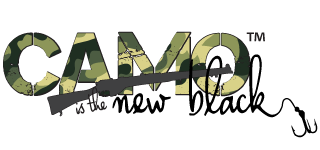
By Tovar Cerulli
Originally published on TheAtlantic.com and reposted here with permission from the author.
Fourteen years ago, I stood in the snow, struggling to digest what I had heard. A group of us, gathered to learn about monitoring and protecting wildlife habitat, had just discovered that our instructor—Sue Morse, founder of Keeping Track—was a deer hunter. I found the news disturbing. How could she work to safeguard the homes of animals she described as “neighbors” and then turn around and shoot one of them? I found it inconceivable that someone could be both an environmentalist and a hunter, a caretaker and a killer.
Today, I, too, am both. I understand that caring for animals and their ecosystems is not incompatible with participating in those systems as a predator. Yet I recall how extreme the contradiction once seemed. And I see how vital it is to bridge the gap.
Wildlife conservation faces serious challenges these days. Among other things, the climate is changing, development continues to fragment habitat, and many state wildlife agencies depend on antiquated funding models. The best way to meet these challenges is for hunter conservationists and non-hunter environmentalists to join forces—overcoming the mutual stereotypes and suspicions that obscure their common ground.
For many environmentalists, the word “hunter” suggests a mindless brute, an enemy of nature who loves guns, kills for fun, and cares nothing for biodiversity or ecological integrity. For many hunters, the word “environmentalist” suggests a self-righteous tree-hugger, an enemy of freedom who hates guns, has no respect for hunting, and imagines nature as a Disney-like fantasyland where humans should not tread.
Though these stereotypes contain grains of truth, hunters and environmentalists aren’t as separate as many imagine. The Nature Conservancy counts many hunters among its members and staff and works closely with hunting-conservation organizations. Likewise, Pheasants Forever has thousands of non-hunting members who appreciate the organization’s work on behalf of native prairie habitats, wetlands, butterflies, and clean water.
The most avid hunters I know—including ecologists, educators, and birdwatchers—are committed to environmental causes. The most passionate environmentalists I know—whether they hunt or not—respect the roles played by all predators, including humans.
Stereotypes notwithstanding, American hunters and environmentalists have never been distinct groups. In the late 1800s, a coalition of hunters and non-hunters sounded the alarm over the excesses of market hunting and the dangers of habitat destruction. Out of those shared efforts came wildlife-advocacy organizations including the National Audubon Society and the Boone & Crockett Club, and crucial legislation such as the Lacey Act of 1900, which prohibited interstate traffic in game taken in violation of state law.
When such organizations collaborate, their combined force is powerful. In 1936, the National Wildlife Federation emerged out of Ding Darling’s vision of a diverse-yet-unified conservation movement. The joint efforts of hunter conservationists and non-hunter environmentalists were vital to passage of the Wilderness Act of 1964, as they have been to the modern-day designation of wilderness areas such as Idaho’s Owyhee Canyonlands.
Such partnerships have conserved millions of acres of wetlands across the country, including 600 acres recently protected along South Carolina’s Black River. For many months, a diverse coalition pushed for the long-overdue renewal of Farm Bill funding for wildlife habitat. The alliance currently defending Alaska’s Bristol Bay against the proposed Pebble Mine—characterized by the company’s CEO as a bunch of “environmental advocacy organizations”—encompasses more than 1,000 hunting and fishing groups and businesses, including Trout Unlimited and Backcountry Hunters & Anglers. The list goes on.
Hunting and environmental organizations don’t always see eye to eye, of course. Intense controversy has arisen over wolves, for instance. Some environmental groups have argued for continued federal protection under the Endangered Species Act, often citing the ecological value of top-level predators. Some hunting-conservation groups have argued for state management and public hunting, often protesting wolves’ predation on cherished game species such as deer and elk. Other organizations have remained neutral. In some cases, the politicized debate has driven wedges between longtime allies, causing rifts that will not be easily healed.
When clashes occur, it is all too easy to fall back on reductive notions about liberal, elite environmentalists and conservative, redneck hunters—the “greens” versus “the hook-and-bullet crowd.” With partisans on both sides invoking stereotypes and the media portraying hunters and environmentalists as opponents, it is tempting to imagine stark lines between the two.
But such divisions are too simplistic. As it turns out, many predator-conservation advocates are hunters. My tracking instructor Sue Morse, for instance, became a hunter in her 40s as a direct result of studying four-footed hunters. Interested in procuring more of her own food, she was drawn to emulate the animals she appreciated so deeply. Michael Soulé, the father of conservation biology, is also a hunter, as were famed conservationists Aldo Leopold, Olaus Murie, and Sigurd Olson.
For hunter and non-hunter conservationists alike, there is danger in turning hunting into a polarizing issue. Both groups risk becoming insular, and letting collaborative opportunities slip out of reach. In the long run, ideological turf matters far less than the ground beneath our feet—the real places and ecosystems that, once lost, may never be restored.
Last autumn, I spent several days hunting deer on a friend’s woodlot. Sitting quietly, I savored the forest: maples and pines filtering the early morning light, chickadees flitting from branch to branch, a ridge-top pool inhabited by wood frogs and spotted salamanders. This autumn, those hundred acres belong to The Nature Conservancy. And I will return to hunt, grateful that the land’s future is assured.
Tovar Cerulli is the author of The Mindful Carnivore: A Vegetarian’s Hunt for Sustenance. As a consultant, he works to foster understanding of diverse perspectives on hunting, wildlife, and conservation. He lives in Vermont and is a founding board member of the New England chapter of Backcountry Hunters & Anglers.





Wonderful!